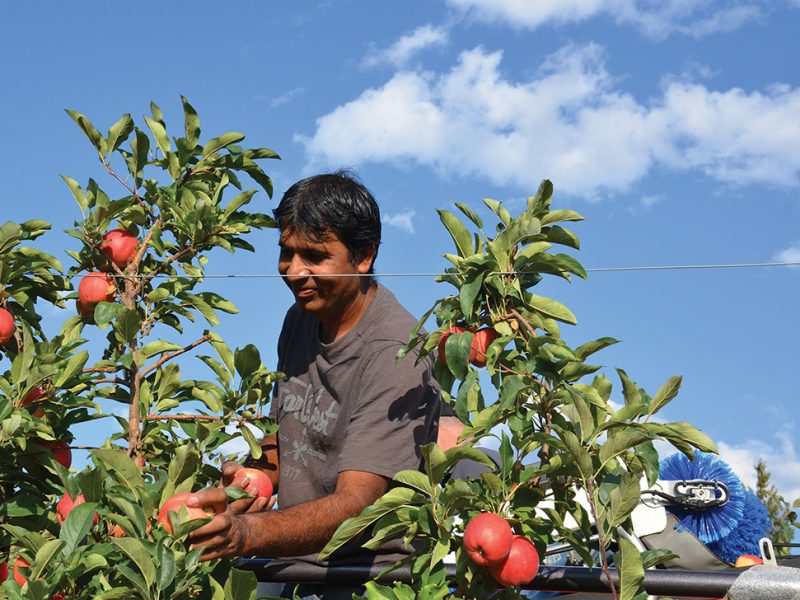A new year brings new rates for produce pickers in B.C.
While most workers who harvest crops by hand receive more than the minimum wage, the annual adjustment to rates establishes a baseline for workers and indicates the rate of upward pressure employers face when it comes to wages.
On December 31, the province mandated a 3.9% increase to piece rates for harvesters of 15 crops harvested by hand.
“This is an annual increase based on B.C.’s average annual inflation rate in 2023 and is consistent with the 3.9% increase to the general minimum hourly wage that came into effect on June 1, 2024,” the province said in announcing the new rates.
Rates for tree fruits are the most expensive on the surface, with apricots maxing out at more than $55 per bin. Apple pickers must be paid at least $24.05 a bin in 2025, while blueberry pickers will receive $0.558 a pound. Daffodil pickers will receive approximately two cents per stem.
Tree fruit pickers have traditionally received well above the minimum wage for their work. This is consistent with Canadian Centre for Policy Alternatives data showing that Kelowna’s so-called living wage is in the range of $25.77 an hour, up 5% from a year ago. (A living wage is the minimum required to afford basic daily requirements in a given region.)
The increases in provincial rates come as inflation shows signs of easing. The latest data shows that inflation in BC during the 12 months ended November slowed to 2.5%. This puts the province’s minimum wage rates to post some of the smallest gains in years this summer.
However, slowing consumer price increases give farmers and retailers less leeway to ask shoppers to pay more to cover wage increases.
Yet with a strong US dollar putting upward pressure on the price of imported products, domestic products may be able to eke out marginal gains that help cover higher labour costs.
Many producers of crops traditionally harvested by hand will continue to invest in automation, however, reducing reliance on scarce labour.


 BC Fruit Growers list test orchard
BC Fruit Growers list test orchard